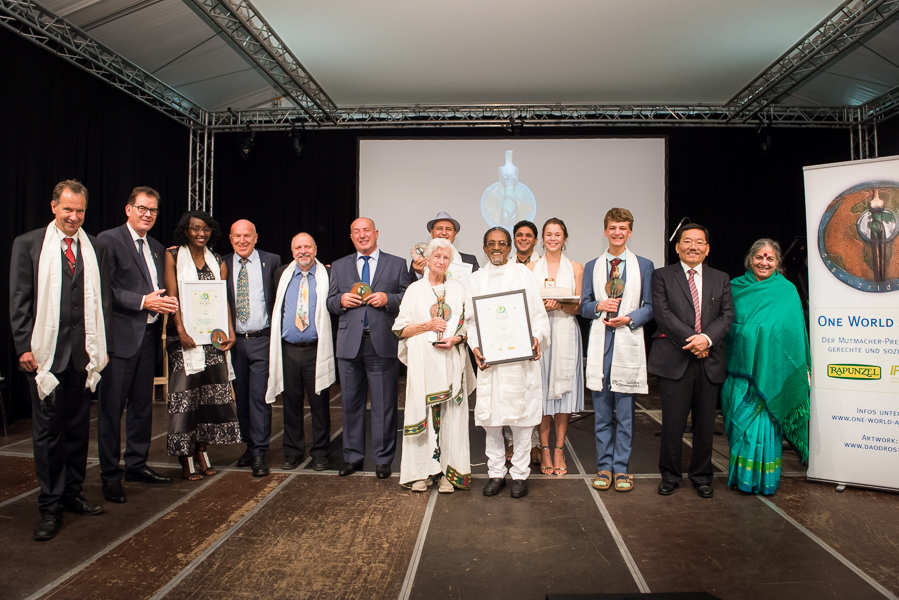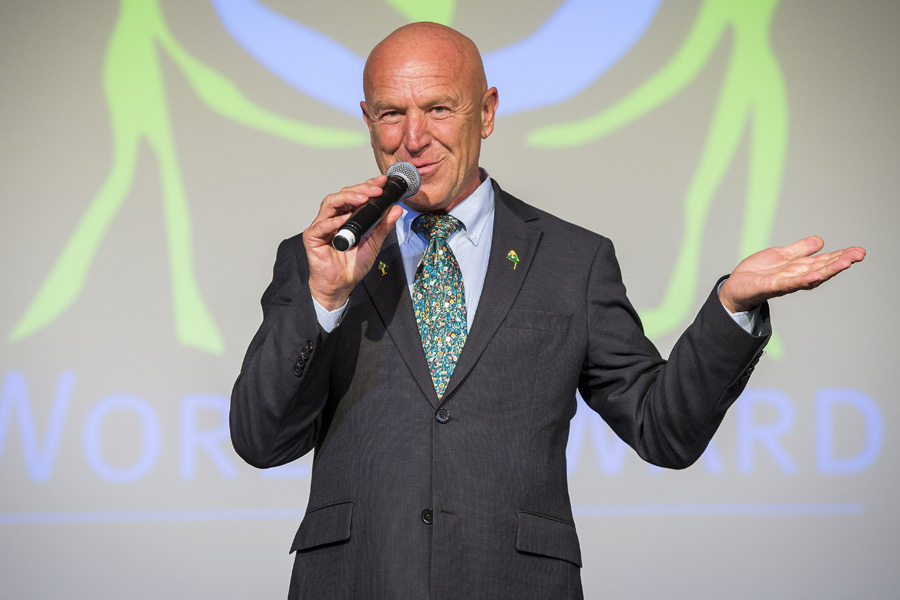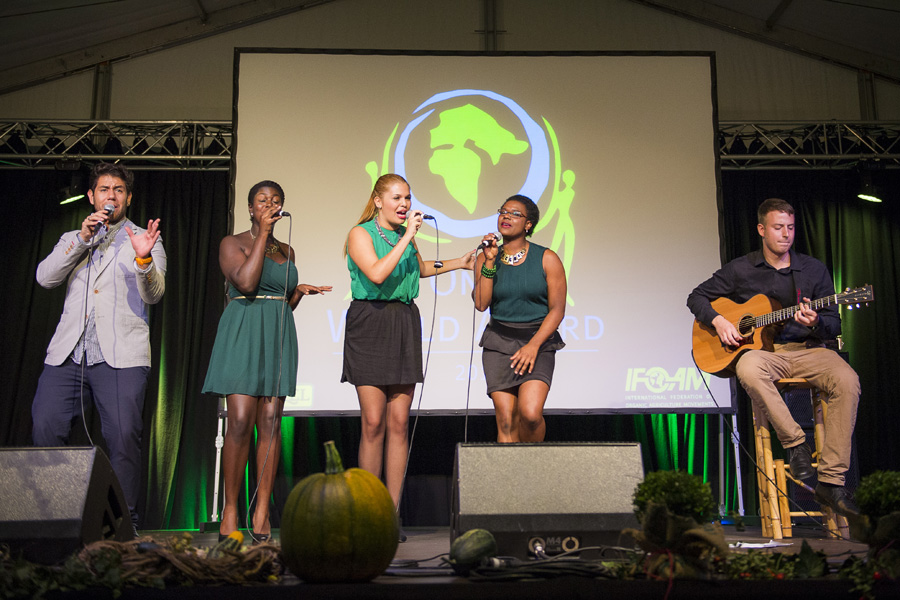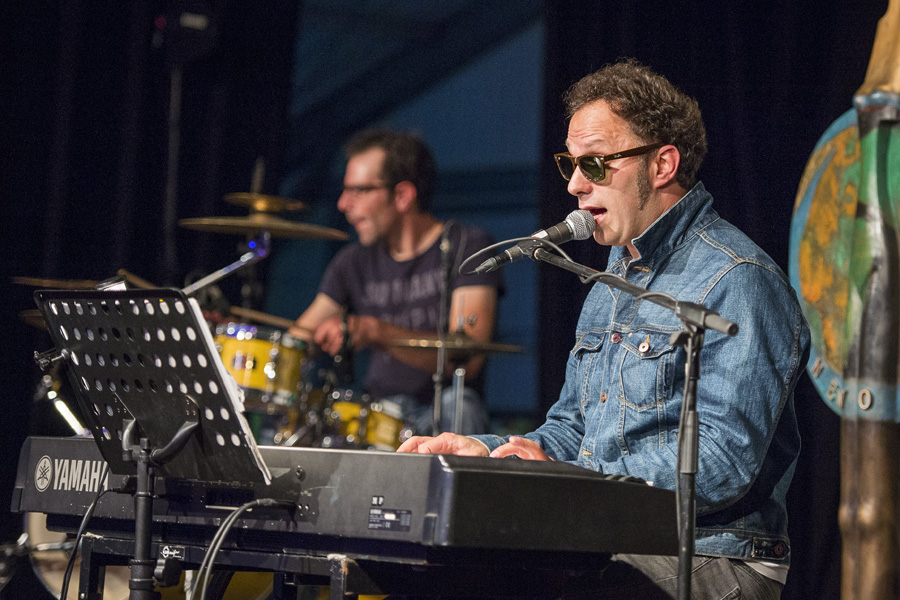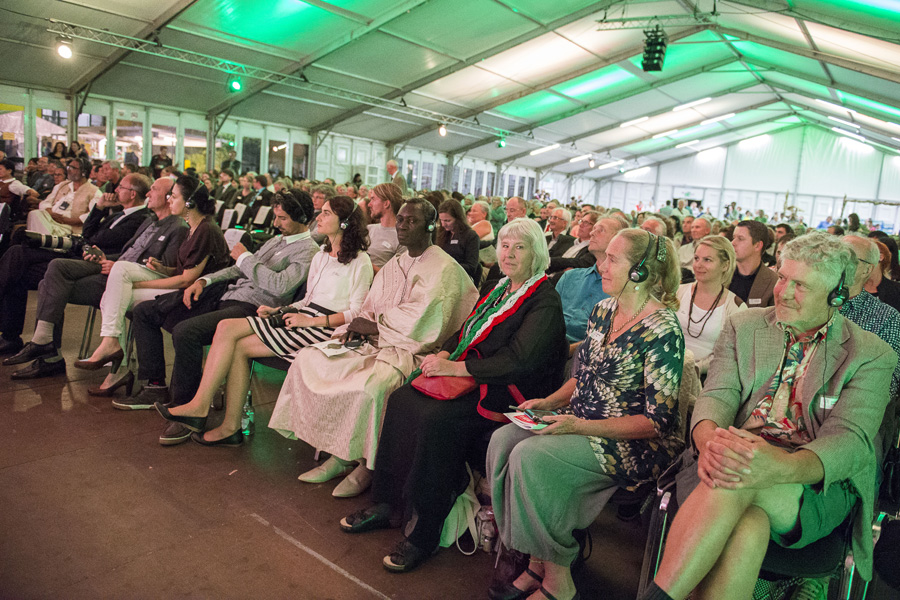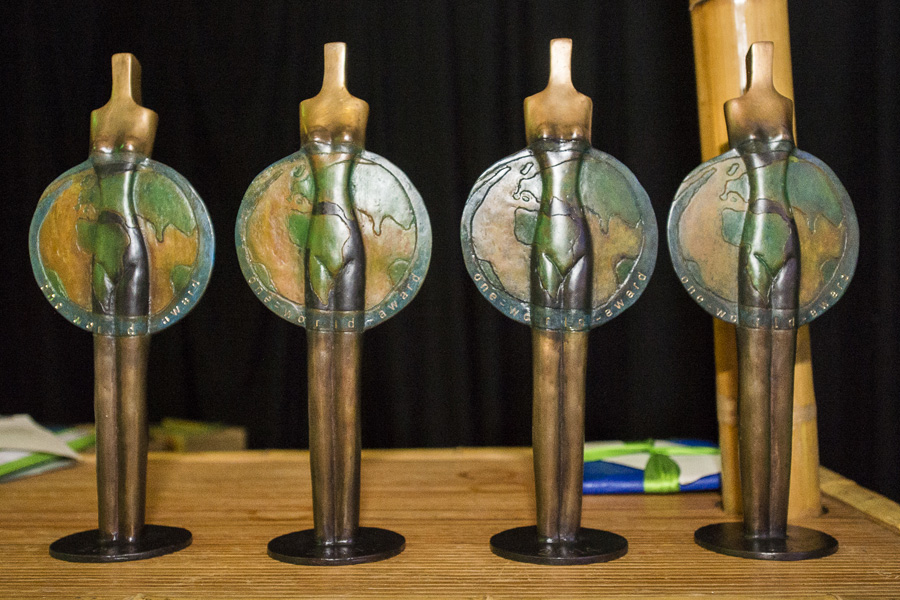Biovision and its projects
Hans Herren invested money he had received from awards to seed a new foundation that would embody his conviction. As a scientist and citizen of the world he believes that nature could be a powerful ally to science and technology for alleviating poverty. The Biovision Foundation focuses on ecological strategies in the development projects it supports in Kenya and other African countries, such as Ethiopia, Tanzania, and Uganda. Cost-effective scalability is integral to the foundation’s tactical aim of leveraging the achievements of its ground-breaking projects so that governments and other NGOs can adopt and profit from the technologies and approaches on a broad scope on the African continent and beyond.
One shared world
OWA Laureates Hans Rudolf Herren and Rachel Agola share a world of challenges and potentialities. Together their success stories exemplify how scientific innovation and individual initiative can preserve this one world and give, as the Biovision Foundation’s dictum says, a future for all life, naturally.
 www.biovision.ch
www.biovision.ch
One shared world
OWA Laureates Hans Rudolf Herren and Rachel Agola share a world of challenges and potentialities. Together their success stories exemplify how scientific innovation and individual initiative can preserve this one world and give, as the Biovision Foundation’s dictum says, a future for all life, naturally.
"Ökologische Experimente mit der Wahrheit"
Raising maize yields through the Push-Pull method
Maize is a staple crop for millions of Africans and a shortage of corn would be disastrous for the whole continent. The stem borer and the striga weed are the main threats to maize in East Africa and can destroy up to 90% of farmers‘ harvests. Local research undertaken by icipe revealed a sustainable way to fight these pests and increase yields – an organic method called Push-Pull. Biovision has attained a quintuplication of harvests in its Push-Pull projects, a stunning result. The method has been taught to thousands of farmers and has been adopted by more than 30,000 of them in East Africa. Indeed Push-Pull is one of the components the Royal Society identified as a technology that can be immediately applied for achieving the massive increase in food crop production in Africa that will be required by 2050 to meet the continent’s food demands without damaging the environment and without cultivation of more land. Women farmers, many who are HIV widows and struggling to survive, have especially been receptive to adopting the successful Push-Pull organic method.
Maize is a staple crop for millions of Africans and a shortage of corn would be disastrous for the whole continent. The stem borer and the striga weed are the main threats to maize in East Africa and can destroy up to 90% of farmers‘ harvests. Local research undertaken by icipe revealed a sustainable way to fight these pests and increase yields – an organic method called Push-Pull. Biovision has attained a quintuplication of harvests in its Push-Pull projects, a stunning result. The method has been taught to thousands of farmers and has been adopted by more than 30,000 of them in East Africa. Indeed Push-Pull is one of the components the Royal Society identified as a technology that can be immediately applied for achieving the massive increase in food crop production in Africa that will be required by 2050 to meet the continent’s food demands without damaging the environment and without cultivation of more land. Women farmers, many who are HIV widows and struggling to survive, have especially been receptive to adopting the successful Push-Pull organic method.
Stopping malaria at its root without DDT
Biovision first started two Stop Malaria projects in Kenya in 2004 (Nyabondo) and 2005 (Malindi) and after the initial success of the Kenyan projects expanded to Ethiopia in 2007. Local communities learn about the deadly link between mosquitoes and malaria and are trained to protect themselves. Mosquito scouts from the local villages are instructed how to identify breeding grounds and eradicate the sites – using measures such as building ditches through community work or disposing of tires – or eliminate the larvae themselves with environmentally friendly bacteria called Bti.
With relatively small expenditures – around US$ 270,000 for all three projects in 2008 – and by implementing the projects through icipe and local NGOs and parastatal organizations, dramatic relief from this scourge is being sustained. The prevalence of malaria cases effectively dropped by up to 62% in the last year alone (Nyabondo) and the number of mosquito larvae has shriveled between 50% (Malindi) and 80% (Nyabondo) in the last two years alone. As the Stop Malaria sites are geographically distinct – Malindi is a tourist port city while Nyabondo is a poor rural area characterized by local brick making – they can serve perfectly as pilot projects for a national health initiative. Biovision aims to convince governmental bodies to adopt this sustainable method to fight malaria rather than regressing to the use of substances (i.e. DDT), which are dangerous for people, future generations, and the land.
Biovision first started two Stop Malaria projects in Kenya in 2004 (Nyabondo) and 2005 (Malindi) and after the initial success of the Kenyan projects expanded to Ethiopia in 2007. Local communities learn about the deadly link between mosquitoes and malaria and are trained to protect themselves. Mosquito scouts from the local villages are instructed how to identify breeding grounds and eradicate the sites – using measures such as building ditches through community work or disposing of tires – or eliminate the larvae themselves with environmentally friendly bacteria called Bti.
With relatively small expenditures – around US$ 270,000 for all three projects in 2008 – and by implementing the projects through icipe and local NGOs and parastatal organizations, dramatic relief from this scourge is being sustained. The prevalence of malaria cases effectively dropped by up to 62% in the last year alone (Nyabondo) and the number of mosquito larvae has shriveled between 50% (Malindi) and 80% (Nyabondo) in the last two years alone. As the Stop Malaria sites are geographically distinct – Malindi is a tourist port city while Nyabondo is a poor rural area characterized by local brick making – they can serve perfectly as pilot projects for a national health initiative. Biovision aims to convince governmental bodies to adopt this sustainable method to fight malaria rather than regressing to the use of substances (i.e. DDT), which are dangerous for people, future generations, and the land.
Reducing the agricultural information deficit: farmer communication program
Biovision has built an information network to let knowledge flow out to as many small farmers and people in Africa as possible. There is the monthly magazine called The Organic Farmer, a weekly radio program on sustainable farming called TOF Radio, and the comprehensive, online information platform. Together, these communication channels merge knowledge from local and international research as well as the knowhow gained through Biovision’s on-the-ground experience into user-friendly formats. The Organic Farmer Magazine was established as a Biovision project in 2005 and has increased its circulation to 19,000 reaching altogether more than 100,000 small-scale farmers, while the radio program reaches more than 3 million listeners. The information platform is open free of charge to all users of the worldwide web and has been used by about 70,000 Internet users in 2009 alone. Especially the Internet platform boasts an enormous potential for the future of sustainable farming as Internet usage in Africa is ever growing, and Internet cafés are mushrooming all over Kenya. The demand for practice-oriented and locally adapted techniques in the agricultural sector is huge and in light of climate change, up-to date and locally relevant advice on pests and diseases becomes ever more essential.
Biovision has built an information network to let knowledge flow out to as many small farmers and people in Africa as possible. There is the monthly magazine called The Organic Farmer, a weekly radio program on sustainable farming called TOF Radio, and the comprehensive, online information platform. Together, these communication channels merge knowledge from local and international research as well as the knowhow gained through Biovision’s on-the-ground experience into user-friendly formats. The Organic Farmer Magazine was established as a Biovision project in 2005 and has increased its circulation to 19,000 reaching altogether more than 100,000 small-scale farmers, while the radio program reaches more than 3 million listeners. The information platform is open free of charge to all users of the worldwide web and has been used by about 70,000 Internet users in 2009 alone. Especially the Internet platform boasts an enormous potential for the future of sustainable farming as Internet usage in Africa is ever growing, and Internet cafés are mushrooming all over Kenya. The demand for practice-oriented and locally adapted techniques in the agricultural sector is huge and in light of climate change, up-to date and locally relevant advice on pests and diseases becomes ever more essential.
Medicinal plant-based enterprises to conserve biodiversity
“Create income - save the forests” is the slogan of villagers living next to the Kakamega Forest in western Kenya. Many farming families are driven to overly use wood, plants, and grass from protected forests in order to survive. Biovision and its partner icipe, knowing that new sources of income were critical to sustain all life in the region, support local cooperatives whose members plant aromatic and medicinal plants on their farms using organic methods. These groups work closely with icipe to monitor cultivation, secure a stable selling price, and process the raw materials at environmentally friendly distillation facilities. A valuable plant extract is made into rubs and ointments that are currently marketed locally and nationally under the Nature Rub trademark. The interest of farmers to join the enterprise is great. Plans are being worked on to receive organic certification via the internal control system for small producers and fair trade labeling, thus positioning the products to enter international markets.
“Previously my income as a conventional farmer simply did not meet my family’s needs. When I learned of the opportunity to take part in the medicinal plant project, the big turn around happened. We can earn more by cultivating medical or medicine plants. I personally have learned through the project that I have a head for the business.“ James Ligare, Herb Farmer and Leader of the Muliru Farmers Group in Fakinaga
“Create income - save the forests” is the slogan of villagers living next to the Kakamega Forest in western Kenya. Many farming families are driven to overly use wood, plants, and grass from protected forests in order to survive. Biovision and its partner icipe, knowing that new sources of income were critical to sustain all life in the region, support local cooperatives whose members plant aromatic and medicinal plants on their farms using organic methods. These groups work closely with icipe to monitor cultivation, secure a stable selling price, and process the raw materials at environmentally friendly distillation facilities. A valuable plant extract is made into rubs and ointments that are currently marketed locally and nationally under the Nature Rub trademark. The interest of farmers to join the enterprise is great. Plans are being worked on to receive organic certification via the internal control system for small producers and fair trade labeling, thus positioning the products to enter international markets.
“Previously my income as a conventional farmer simply did not meet my family’s needs. When I learned of the opportunity to take part in the medicinal plant project, the big turn around happened. We can earn more by cultivating medical or medicine plants. I personally have learned through the project that I have a head for the business.“ James Ligare, Herb Farmer and Leader of the Muliru Farmers Group in Fakinaga



